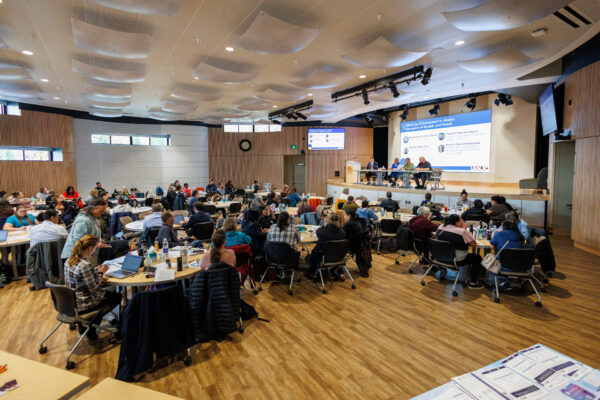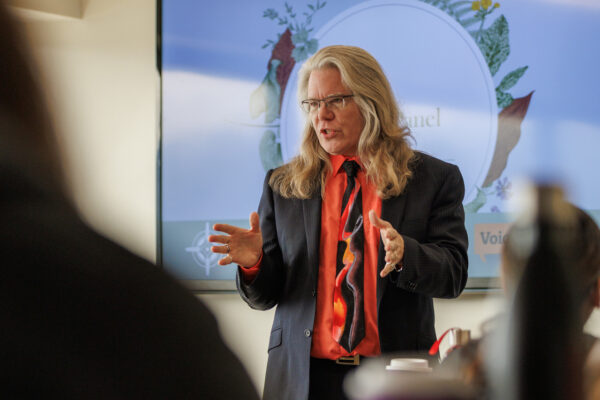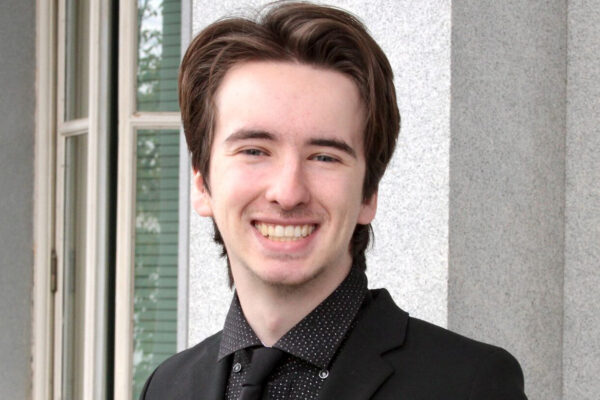ANJC’s support for tribal ICWA workers helps ensure best-case scenario for children in foster situations
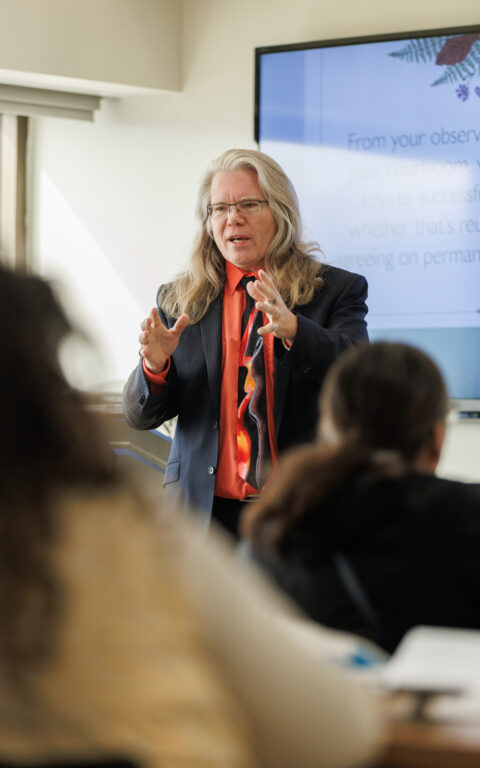
Geraldine Nicoli-Ayonayon has been working to protect children as a caseworker with the Knik Tribe for long enough that she doesn’t remember when, exactly, she started. One thing she does know: She’s always been on her own.
“There’s not a lot of funding for this program, so I’m the one person doing this work for the Knik Tribe,” she said.
Officially, her title is Indian Child Welfare Act (ICWA)/102-477 Manager. Though her role comes with lots of responsibilities, her focus is intervening in cases where the Office of Children’s Services (OCS) removes children who are part of the Knik Tribe from their parents.
Tribes work to ensure a best-case scenario for children involved with OCS, whether that means eventual reunification with their family or placement with a relative or tribally-designated home. Reaching agreement with the parties for these cases requires attending hearings, arguing the Tribe’s case, attending Team Decision Meetings, and wading through all the legalese and paperwork that comes with being involved in a legal proceeding.
While Geraldine has years of experience working with families and OCS, she isn’t a lawyer—and neither are most tribal ICWA case workers.
Parents who are involved with ICWA and Child in Need of Aid (CINA) cases are appointed representation by the state. However, tribes working to ensure that children are placed in homes that comply with ICWA are not provided an attorney—which makes it difficult for caseworkers like Geraldine to navigate the legal system.
“Sometimes it’s really hard to understand court lingo or to even know how or where to look up information,” Geraldine explained. “Those things are always a struggle, so it’s hard when you don’t have representation.”
“We’re here to help fix that,” said Chad Holt, an attorney with ANJC who provides representation to tribes involved with ICWA and CINA cases.
Since 2019, ANJC has been supporting tribes throughout Southcentral Alaska, and in other parts of the state, with legal guidance and court representation in these cases. In addition to bringing expertise on a niche area of the law, ANJC’s attorneys alleviate the burden on tribal case workers.
Chad and his team bring 30 years’ experience with ICWA to the support they provide tribes—and their work goes beyond ensuring that tribes are in the best legal position to achieve their goals. The team’s familiarity with ICWA means they often find themselves suggesting social work resources for families or acting as a resource when colleagues have questions about ICWA.
The team also takes care of the details, like updating calendars with hearings and meetings and making sure case workers receive invites to those events.
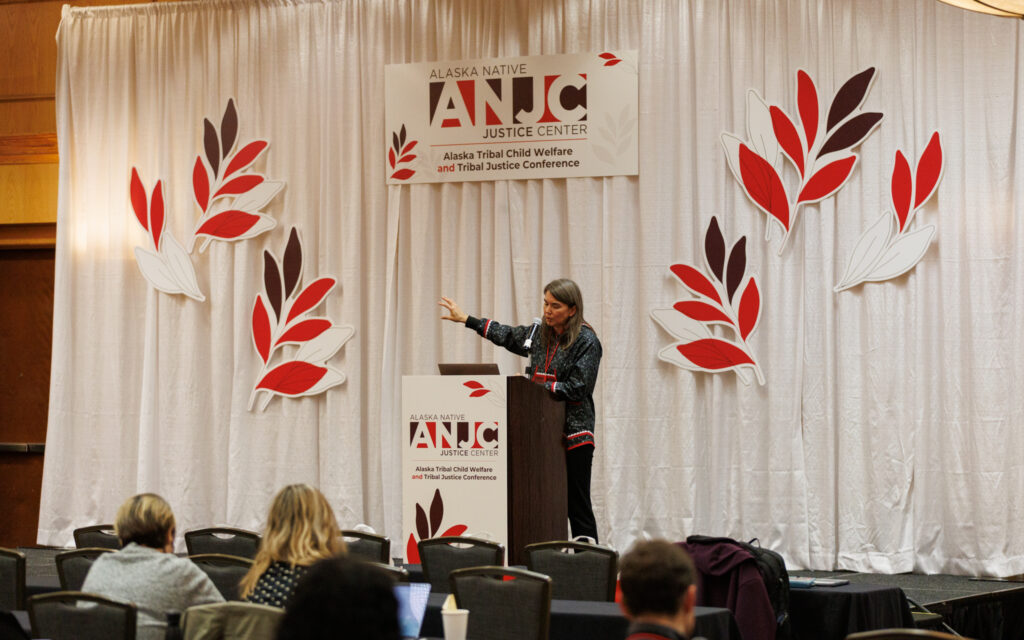
“We’re that voice driving what happens, based on what the tribe wants. It’s advocacy behind the scenes,” Chad described. “Many of these cases really are worked out of court, but when they go to trial, we argue for the Tribe. Even though some tribes have lots and lots of experience doing this work, they don’t have the money for a lawyer. And so we fill that gap for small and large tribes, alike.”
At the time of this story, ANJC’s ICWA team was handling roughly 170 cases, representing about 23 Tribes actively in court. While ICWA support and representation and Tribal Justice services are available to any tribe that wants it, ANJC currently has 37 Tribal clients in Southcentral Alaska and other parts of the state.
It’s a heavy load for a small team. ANJC also holds trainings to empower tribal ICWA workers to build on their knowledge, network between tribes for support, and discover additional resources for their work. Each year, the organization hosts a comprehensive introductory ICWA training for tribes, as well as the three-day Alaska Tribal Child Welfare Workers Conference, where attendees learn more about responding to cases of child abuse and neglect.
“Chad’s team has also helped us with getting our tribal court up and running,” Geraldine mentioned. “They’re always checking in, and Chad’s been a help on every single case he’s been a part of. It’s a big help.”
Your support helps us extend our reach to tribes throughout the state, providing support and services to ensure children are protected under ICWA. Consider donating to our annual Voices for Justice fundraiser today.
Learn more about tribal ICWA support at ANJC.

